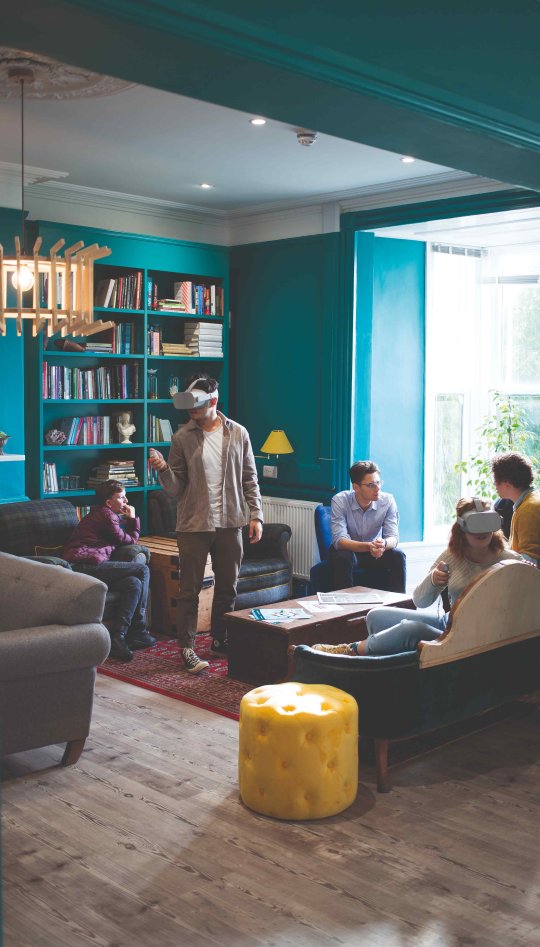
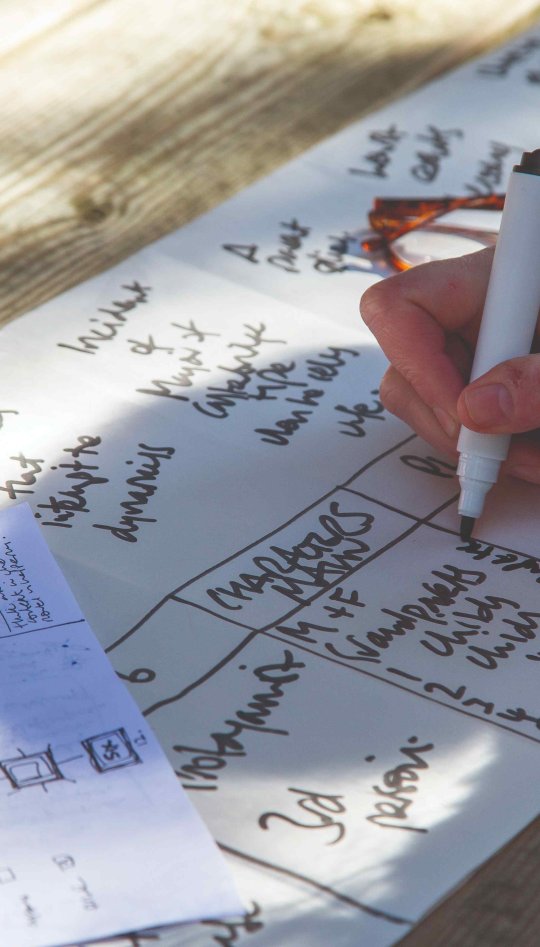
Creative Writing BA(Hons)
Experiment with all forms of writing to develop your writing voice.
Course overview
Do you dream of writing for page, stage or screen? On this Creative Writing BA(Hons), you’ll be encouraged to experiment with all written forms and genres, exploring non-fiction, fiction, poetry, children’s literature and writing for digital games. By analysing the most vital contemporary writing within the context of a rich literary, historical and theoretical past, you’ll develop your authentic voice and can specialise to maximise your creative potential. You’ll learn to draft, edit and pitch your work, graduating with a powerful creative writing portfolio and a wealth of industry contacts.
You will:
- Produce illustrated anthologies, organise mini-festivals or work with a business as part of a collaborative project
- Attend our guest lecture series, where you’ll have the chance to build contacts within all facets of the literary world
- Have the opportunity to attend and participate in literary events such as Falmouth Book Festival and the North Cornwall Book Festival
- Take inspiration from The Lighthouse – the glorious workspace at the heart of our community – which hosts everything from skills and craft workshops to board game sessions, literary quizzes and poetry readings
- Use the stunning natural surroundings as inspiration for the writing process
- Contribute to a vibrant, thriving writing community through FalWriting, our student-led online magazine, or by reading your work at our literary evenings
Course details
On this Creative Writing degree, you'll have the opportunity to gain a BA(Hons) degree over three years or study Creative Writing BA(Hons) with a professional placement year option.
This Creative Writing degree seeks to capture and analyse the most vital contemporary writing (across all formats and media) within the context of a rich literary, historical and theoretical past.
You'll learn, debate and create literary work under the guidance of industry professionals, whether in The Lighthouse, our state-of-the-art campus facilities, or any of our immediate and beautiful natural spaces.
By customising your learning journey you will fully maximise your creative potential. Find your writing voice and focus on your strengths. Make personal connections with industry and community partners through collaborative projects, which will springboard your professional journey from university to your desired industry.
The first year of the degree gives you a grounding in the basics of creative writing, english literature and publishing – all key areas for aspiring writers to be familiar with. But along with the introduction you need, this Creative Writing BA also challenges and breaks the norms of most creative writing degrees with modules like Exploding the Canon: Writing Then and Now and Breaking the Rules: Remix and Writing Back. Each week, you'll have a mix of lectures, workshops and tutorials.
Modules
Writing: Craft and Contexts
Writing: Craft and Contexts explores the practice of writing as a discipline and a craft and asks you to debate ideas about writing, authorship, genre, creativity and audience.
Breaking the Rules: Remix and Writing Back
A challenging, radical and 'breaking the rules' creative writing module, which covers remix and writing back in theory and practice.
Exploding the Canon: Writing Then & Now
How do the literatures of the past infuse the fictions of the present and what do these literatures reveal about us as we are now and us as we once were?
Literatures of Revolution
From the revolutionary ideas of Darwin's theories of evolution to postcolonial revelations, LGBTQI+ movements and the #MeToo phenomena, literature and other textual forms reflect and create society. How do contemporary notions revolutionise texts and how do texts inform revolutionary ideas?
Publishing Cultures
In this module, you'll encounter publishing as a literary and cultural tradition that is dynamic and in a constant state of flux. You will consider the role of technology on the production and dissemination of written texts in the contemporary world.
Publishing Studio: Technologizing the Word
A practical and intermedia publishing module, which might include book design, zine making, performance and exhibition as publication and screen-based media.
Your second year is all about narrowing down to your specialisation, building on two core modules on working as a writer and a collaborative project. You’ll then be able to branch out into different creative writing types to hone your skills in your optional modules.
Your core modules will explore how to plan a project, pitch it and creating your professional writing profile, alongside delivering a dynamic collaborative project with your peers.
The optional modules in year two will give you the opportunity to grow your writing abilities in different specialisms including: writing for games, screenwriting, poetry, creative non-fiction and writing for radio or theatre. You’ll then hone your creative, analytical, critiquing and writing skills and learn how to research, plan, pitch and build a professional profile.
Modules
Writing Project: Making Your Voice Heard
Cut through the noise: get the skills you need in researching, planning, pitching, building a profile or performing resistant alternatives to work as a writer.
Collaborative Project
In this module you'll consider the writer's role as part of a creative eco-system, and/or literature's role in the creative economy through working on a live collaborative project. The project can be a placement in the writing-related industries, a case study or live brief with a business (for example, literary festivals, creative agencies, publishing houses, the heritage sector), or a collaborative project with peers culminating in an event performance or piece of creative practice.
Optional modules
Screenwriting
Poetry
Games
Satire & Scandal
Fiction
Creative Non-Fiction
Radio & Theatre
Magic and the Impossible
You can choose to take an optional professional placement after your second year on a three-year programme.
You’ll be responsible for finding your own placement, with support from the employability team.
Choosing this option will enhance your industry experience and skills while studying.
How you’ll study during your professional placement
You’ll spend time working in a professional context, as part of a business or organisation. This can be in one role, or up to three, and must be for a minimum of 24 weeks.
You’ll develop in-demand workplace skills, deepen your insight into industry and grow your network of contacts, all of which could help you get ahead in your career after graduation.
Throughout this year, you’ll develop a portfolio of work that includes critical self-reflection on what has been learned from the experience. You’ll be required to evidence your experiences, the skills you’ve learned and your professional growth.
Harnessing the knowledge and skills you’ve honed throughout your Creative Writing degree, in your final year you’ll work on a dissertation and portfolio, allowing you to create a critical and sustained piece of work. For these projects, you’ll have weekly tutorials with your supervisor, giving you a close focus on your own writing. You’ll work on live briefs that cover a range of post digital writing, preparing you for working as a writer after graduation.
You’ll also choose from optional modules during the year, and you’ll study a module in experimentation and adaptation.
Modules
Portfolio
You'll write an independent extended piece of creative writing or collection of creative pieces in a genre, form, topic of your choosing.
Experiment and Adaption
Engage with some of the limits of textuality, testing the boundaries of understanding, meaning and communication. By looking at how texts can be remediated, how they morph and repeat, you'll analyse how texts sit within the time and place of their production, but also how they can innovate and shift.
Post-Digital Content
Working closely with live, department-based digital media projects such as FalWriting, you'll get to experience what it's like to be an industry-quality practitioner.
Optional modules
Beyond Humans: Writing in the Anthropocene
Crime & Dark Fiction
Children & Young Adult
Innovations
We regularly review course and module content to ensure our students receive a high-quality and rewarding academic experience. As such, there may be changes made to the curriculum which are not immediately reflected in the content displayed on our website. Optional modules may be updated to maintain the best experience. Any students or applicants affected will be informed of approved changes directly.
From module information to course aims and assessment criteria, discover the full course details:
Prussia Cove inspires students on weekend writing retreat
Third-year students on our undergraduate writing and journalism courses recently gathered at Prussia Cove for a weekend writing retreat.
The group took part in an array of workshops, walks and writing sessions led by lecturers from across Falmouth’s School of Communication. Discover more about the writing retreat.
"....involving students in collaborations is one of the best things about [..] a multi-arts university. It gives them valuable experience of working on high-profile projects..."
- Tom Scott, lecturer
Stories from our community
Explore student projects, graduate successes, staff news and industry insights
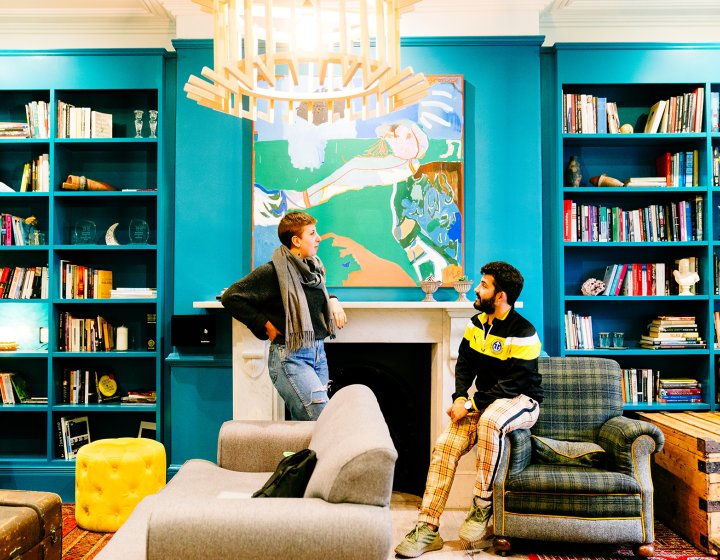
Why I ended up studying Creative Writing at Falmouth University
28 May 2025
When I found the Creative Writing course at Falmouth, I selected it as my top choice pretty quickly,...
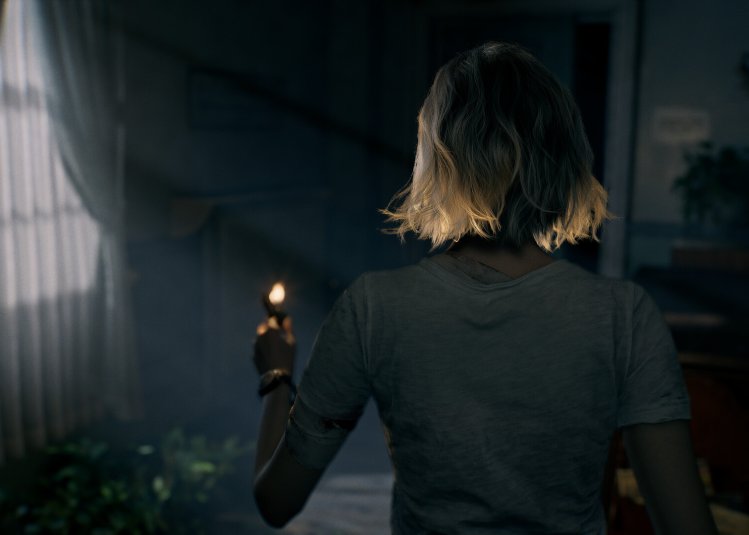
Resident Evil 9 and the return of playable fear: Why horror games matter more than ever
27 February 2026
This article was written by Dr Eoin Murray, BA(Hons) Creative Writing lecturer and organiser of Falm...
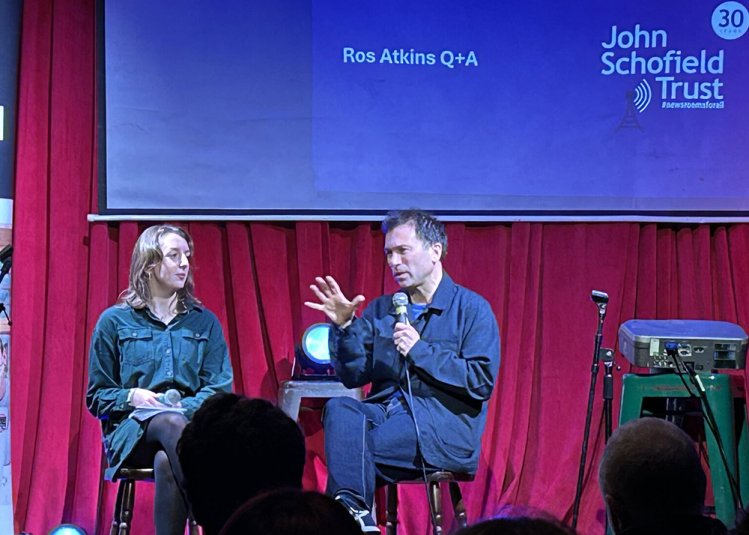
Journalism & Creative Writing charity partner host media masterclass in Falmouth
27 February 2026
The John Schofield Trust, a national charity which partners with Falmouth University, provides mento...
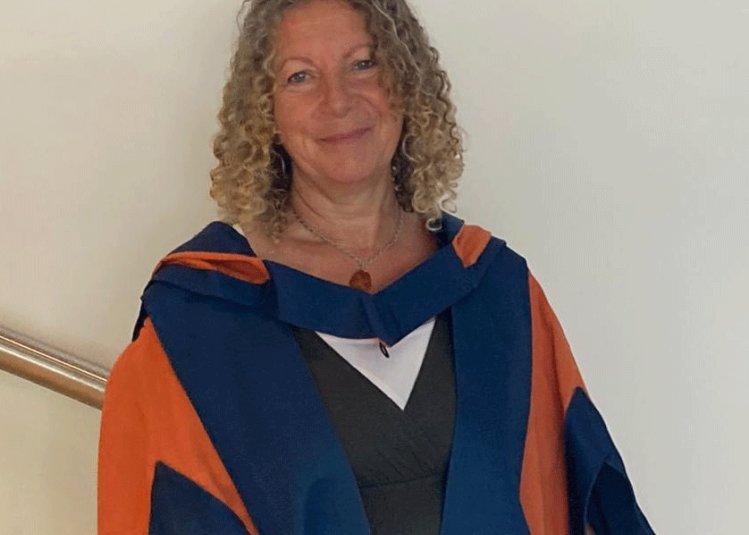
English lecturer edits the latest instalment of the British Library’s Tales of the Weird series
20 February 2026
After studying Catherine Crowe’s work for many years, authoring Catherine Crowe: Gender, Genre, a...
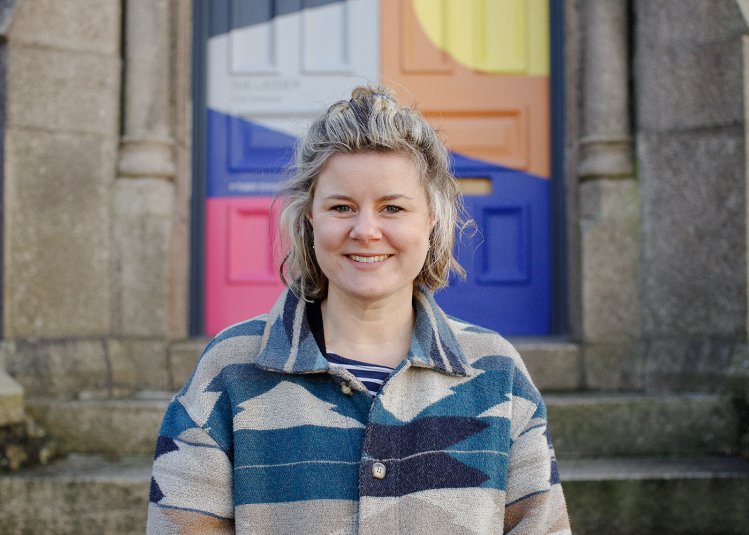
Falmouth graduate leads communications campaign for Redruth Town of Culture bid
02 February 2026
MA Communication Design graduate Bethia Naughton-Rumbo has spent fifteen years as a marketing consul...
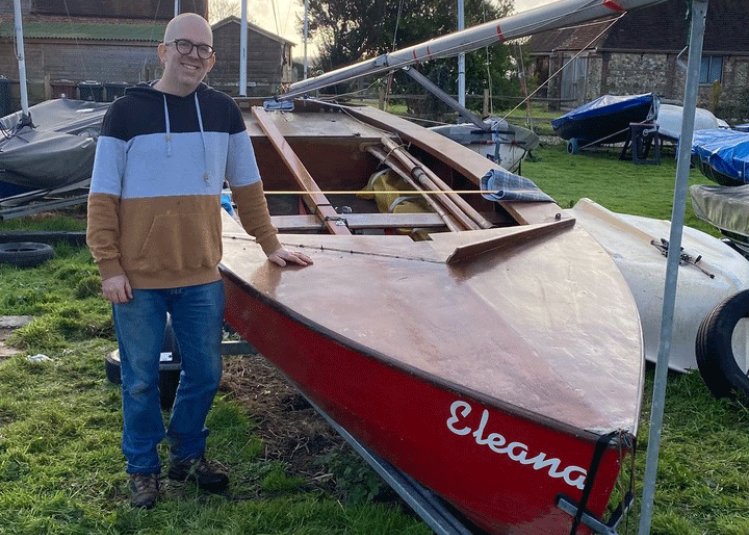
MA Professional Writing lecturer signs deal with Picador to publish new book set in Cornwall
28 January 2026
Just a few months after his short story was published in the 2025 edition of Best British Short Stor...
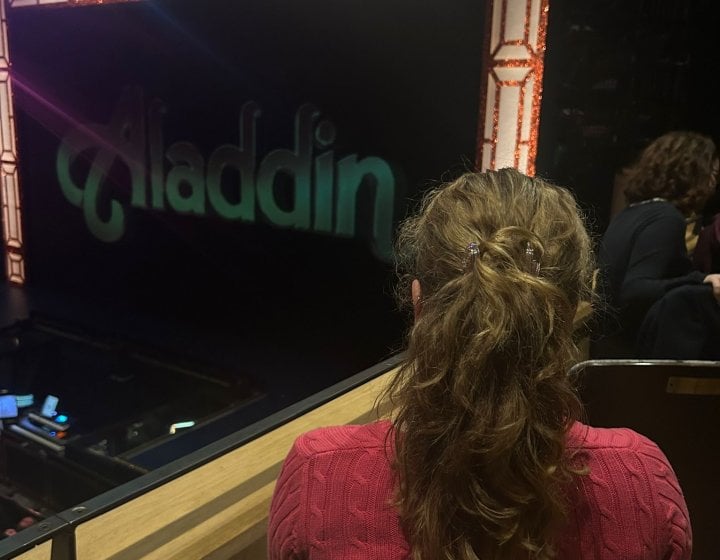
Why I chose to study Journalism & Creative Writing at Falmouth
07 January 2026
Journalism & Creative Writing student, Marla discusses why she chose to study at Falmouth.
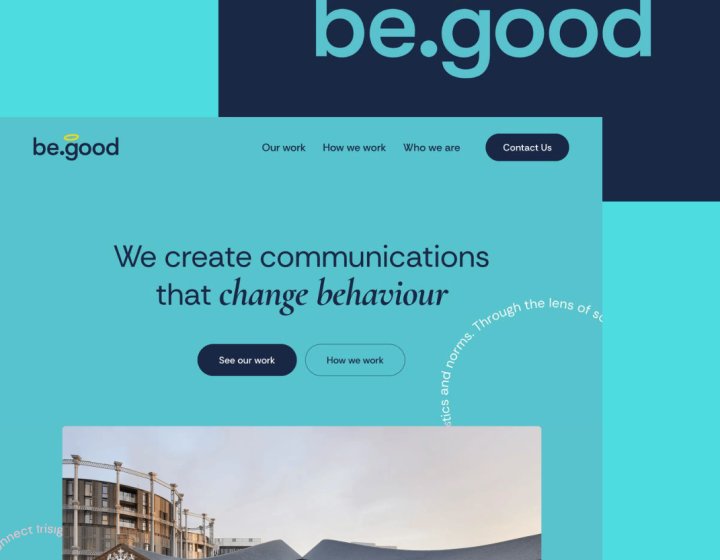
Be Good launches new identity and website
05 December 2025
Be Good, Falmouth University’s staff-led and student-driven creative agency, has launched a new we...

Be Good launches new identity and website
05 December 2025
Be Good, Falmouth University’s staff-led and student-driven creative agency, has launched a new we...
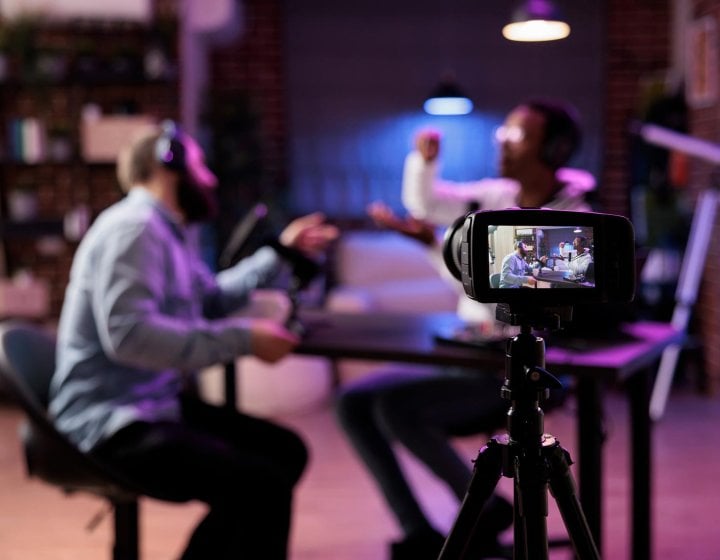
The differences between Falmouth’s creative content, marketing and media courses
27 November 2025
If you’re an aspiring storyteller with a keen interest in digital platforms, then you may be think...
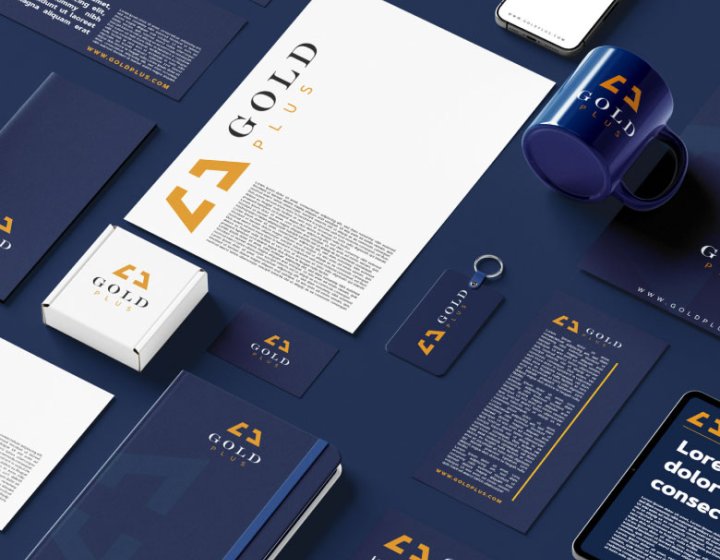
Finding new direction with an online master’s in Graphic Design
26 November 2025
After almost twenty years working across freelance, agency and in-house roles, Filip Korić decided ...

Finding new direction with an online master’s in Graphic Design
26 November 2025
After almost twenty years working across freelance, agency and in-house roles, Filip Korić decided ...
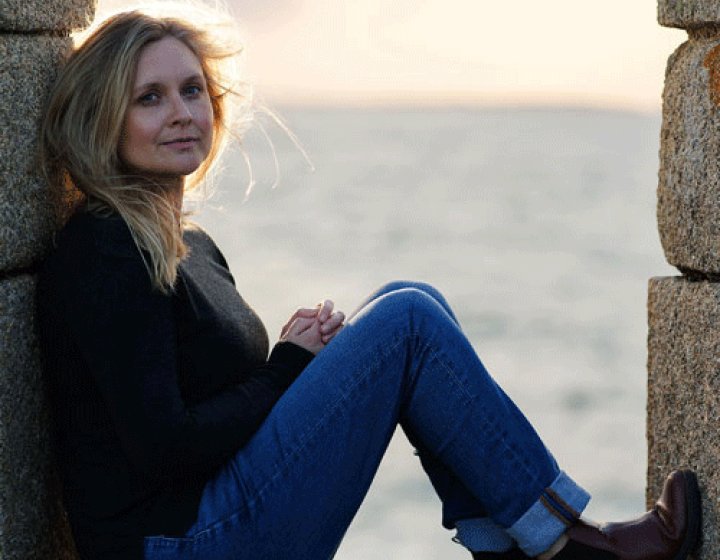
Creative Writing alumna releases dark academia romantasy with HarperCollins UK
21 November 2025
The Ordeals, the latest novel by bestselling fantasy author and English & Creative Writing BA(Hons) ...

Creative Writing lecturer co-writes new horror film set in Cornwall
14 November 2025
Falmouth University’s Sound/Image Cinema Lab (S/ICL) and Creative Writing BA(Hons) lecturer, Craig...
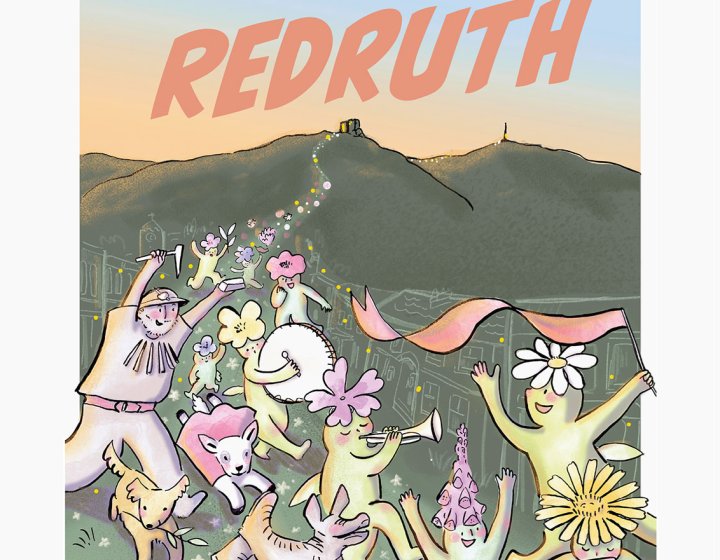
Students collaborate on Made in Redruth newspaper
13 November 2025
Falmouth students across three courses have worked together to write and illustrate ‘Made in Redru...

Students collaborate on Made in Redruth newspaper
13 November 2025
Falmouth students across three courses have worked together to write and illustrate ‘Made in Redru...
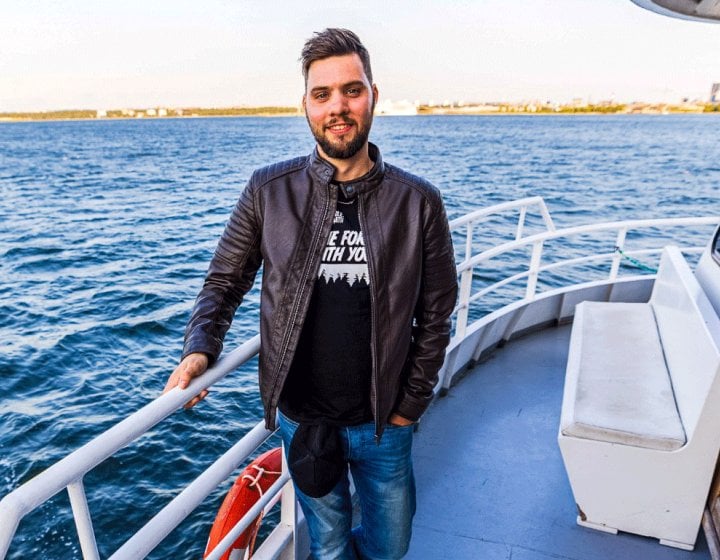
Meet the award-winning travel writer making a career of documenting his experiences
11 November 2025
“I wouldn’t have landed this job or won my award without the Journalism MA”, says Falmouth gra...
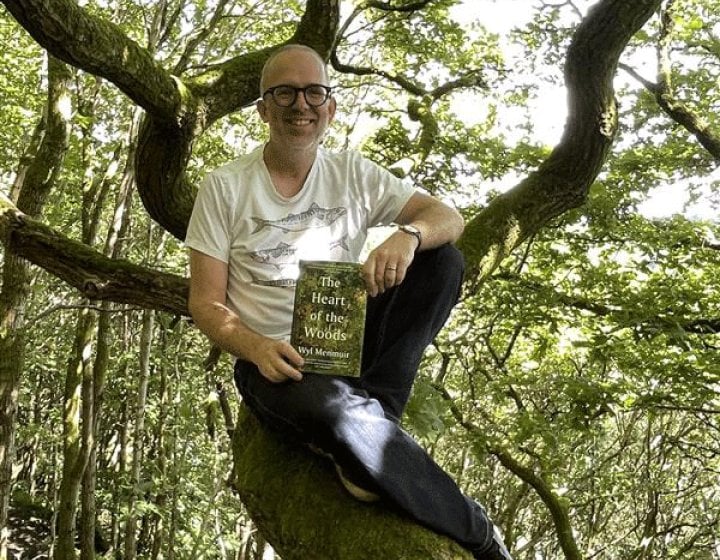
Professional Writing lecturer on his award-winning novels and short stories
24 October 2025
Falmouth’s award-winning, Man-Booker nominated Professional Writing BA lecturer, Wyl Menmuir, has ...
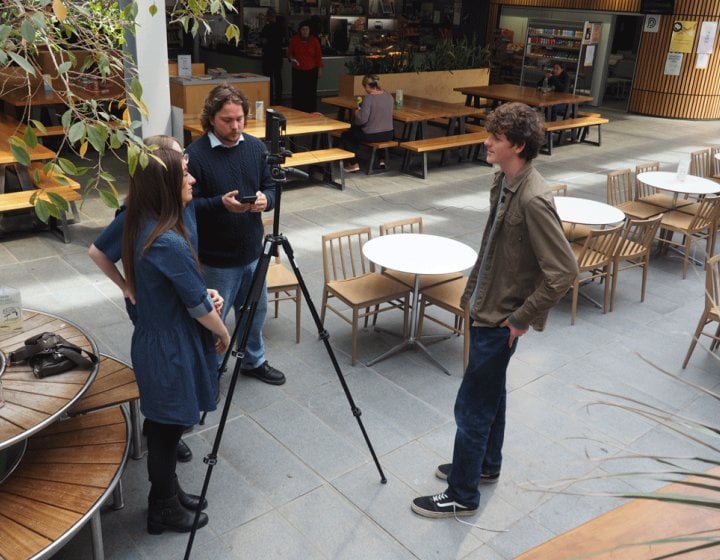
Journalism students and lecturers host school pupil journalism event with local MP
07 October 2025
Falmouth University’s journalism newsroom was buzzing last month as local school students grilled ...
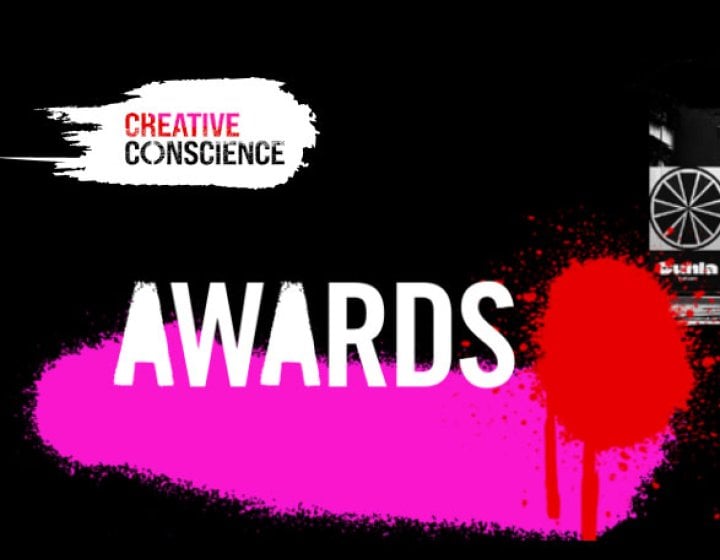
Students win big at Creative Conscience Awards 2025
07 October 2025
Eight students have been awarded the top awards at this year’s Creative Conscience Awards, with th...
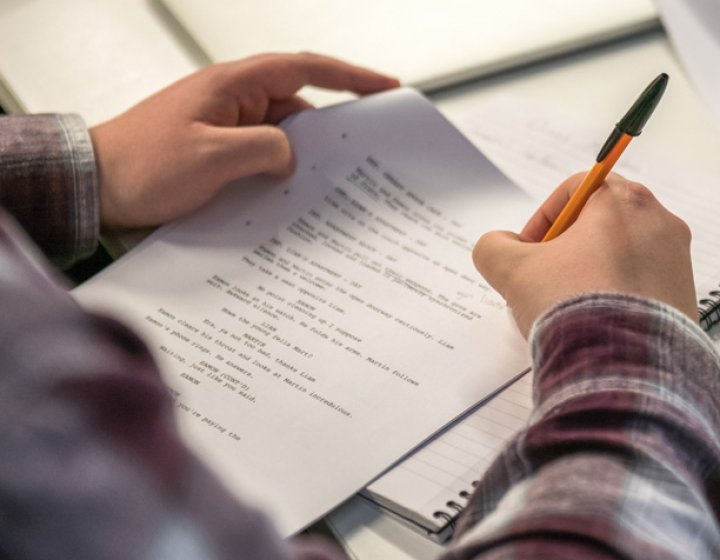
Comedy Writing graduate’s script picked up by prime-time production company
23 September 2025
When writer Andy Thompson joined Falmouth’s online Comedy Writing master’s in 2020, he never exp...
How you'll learn & be assessed
On this Creative Writing degree, you'll work on live briefs set by creative industry partners, and learn from lectures and workshops with our guest speakers and Writers in Residence.
On top of your regular lectures, seminars, workshops and self-directed learning, you'll get plenty of time with our staff and the chance for frequent one-to-one tutorials. You'll also have the opportunity to contribute to our student writing journal.
At Falmouth, we use a 'digitally enhanced learning & teaching' approach. Your experience will always be predominantly in-person, including seminars, tutorials and studio teaching, with some, more targeted elements, being online either live (synchronous) or pre-recorded (asynchronous). You can read more here.
100% of your assessment will be coursework.
Assessment methods
- Coursework and e-learning exercises.
- Live creative industry briefs.
- Final-year creative writing portfolio.
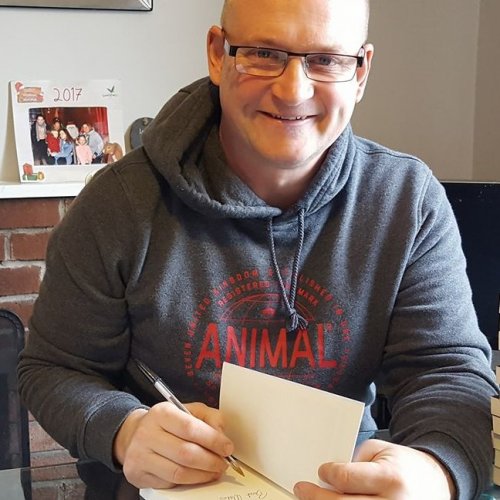
Meet the accidental author juggling multiple book deals
Graduate Adrian Martin has just published his second book Stone Ruins and City Smoke and is currently signed to two deals with Dark Edge Press and Spellbound Books - find out Falmouth's creative community helped him do it.
Read Adrian's storyStaff
You'll be taught by published writers and academics from fields like screenwriting, radio, theatre, contemporary poetry, digital texts, writing for games, writing and environment, fiction and non-fiction, publishing and print culture, and children's and young adult writing.
Some members of staff only teach on specific modules, and your course might not feature every staff member who teaches on the course.
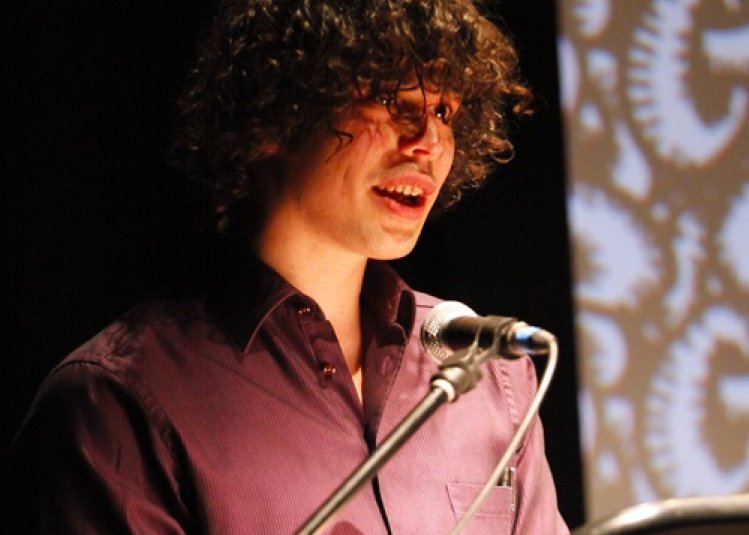
Dr David Devanny
Associate Professor Multimedia Writing & Storytelling
David is an Associate Professor and acting Head of Subject for Writing and Journalism at Falmouth Un...
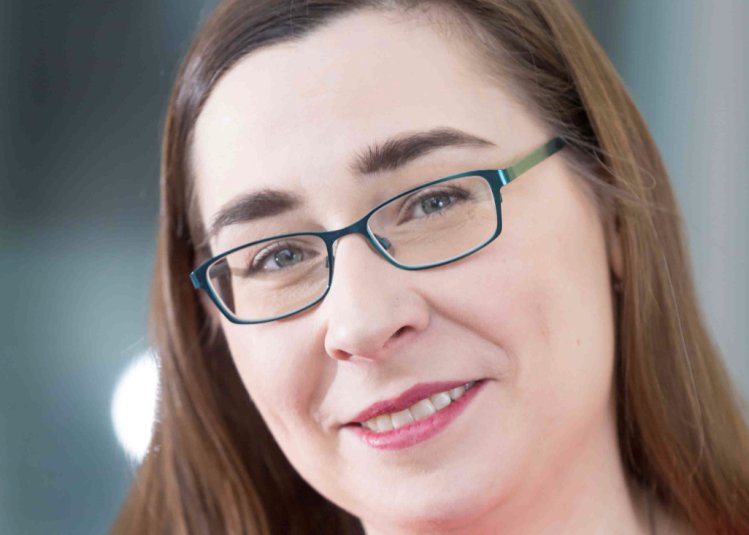
Dr Jennifer Young
Dean, Faculty of Business & Design
Jennifer Young came to Falmouth in 2019 to take up the post of Head of Writing and Journalism. She o...
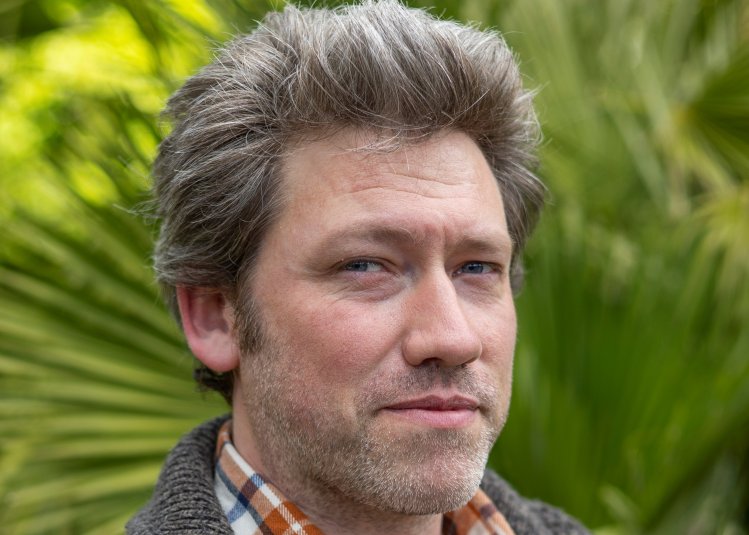
Dr Luke Thompson
Course Leader, MA Professional Writing
Luke is a writer and publisher from Cornwall. His interests include human-animal relationships, smal...
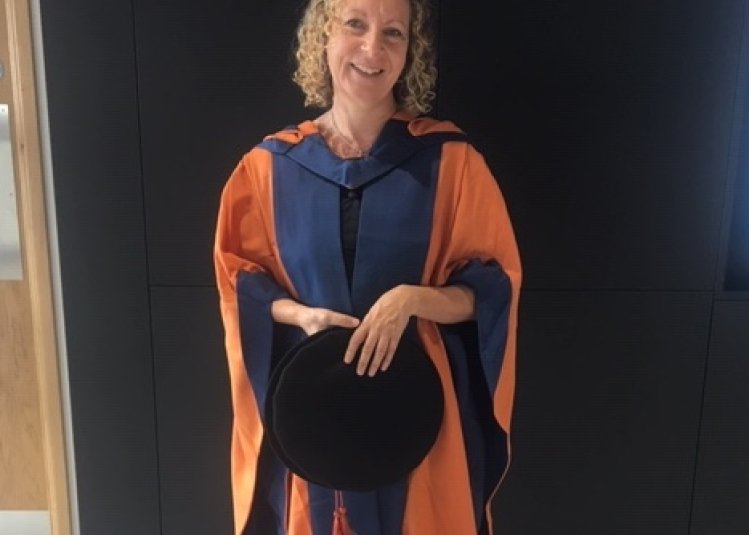
Professor Ruth Heholt
Professor of Literature and Culture
Ruth Heholt is an internationally renowned scholar in the fields of Gothic, supernatural, Victorian,...
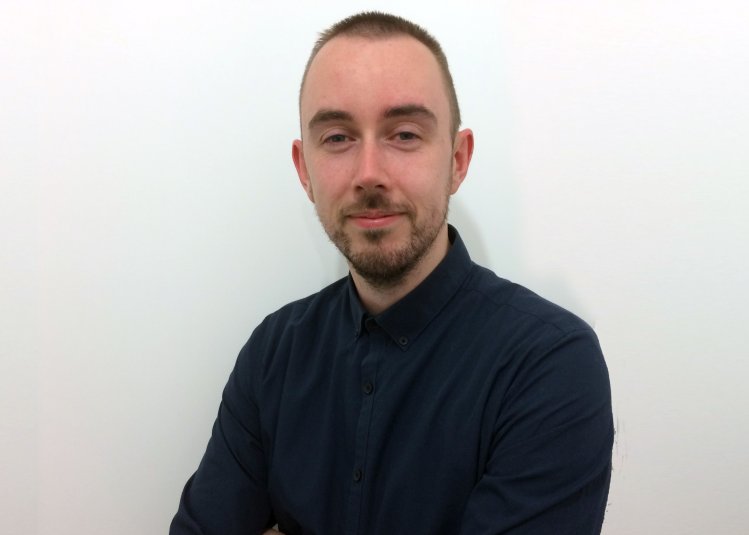
Dr John Finnegan
Course Leader, MA Writing for Script & Screen
John has worked in the film and media sector for twenty years. He started his career a...
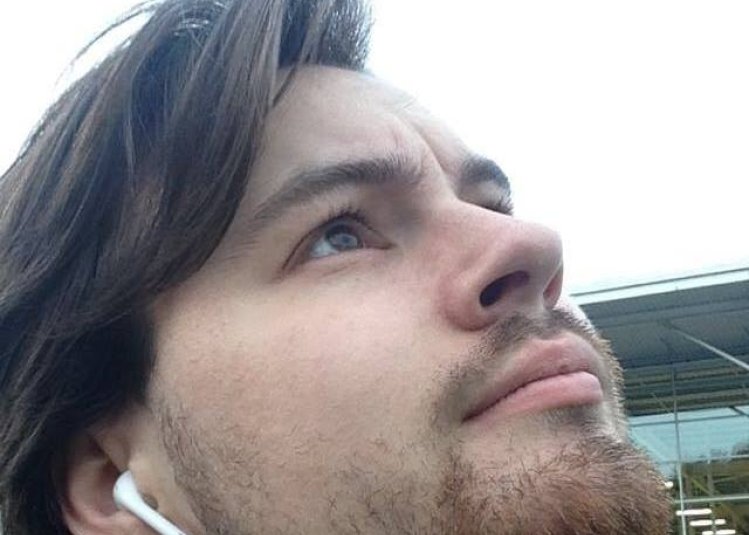
Dr Eoin Murray
Lecturer, Creative Writing BA(Hons)
Eoin Murray is a Welsh writer, game scripter, and ludo-narratologist from Bangor in North Wales curr...
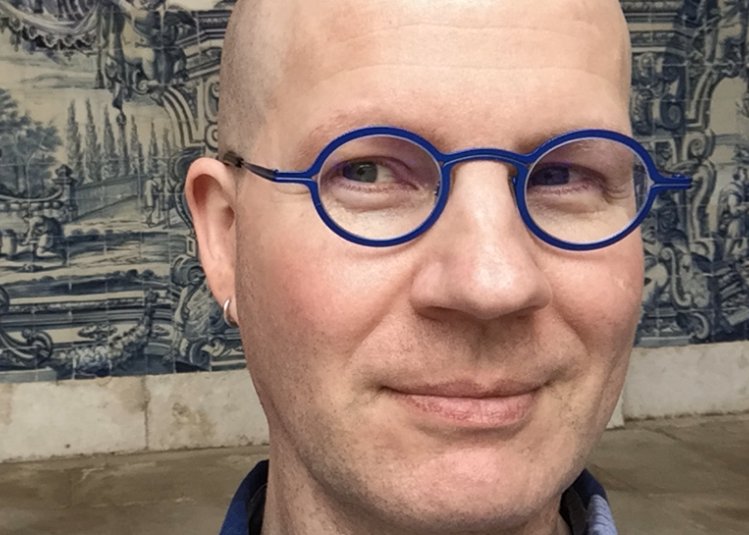
Dr Marshall Moore
Course Leader and Senior Lecturer
Dr. Marshall Moore hails from North Carolina and relocated to the UK in 2020 after living and workin...
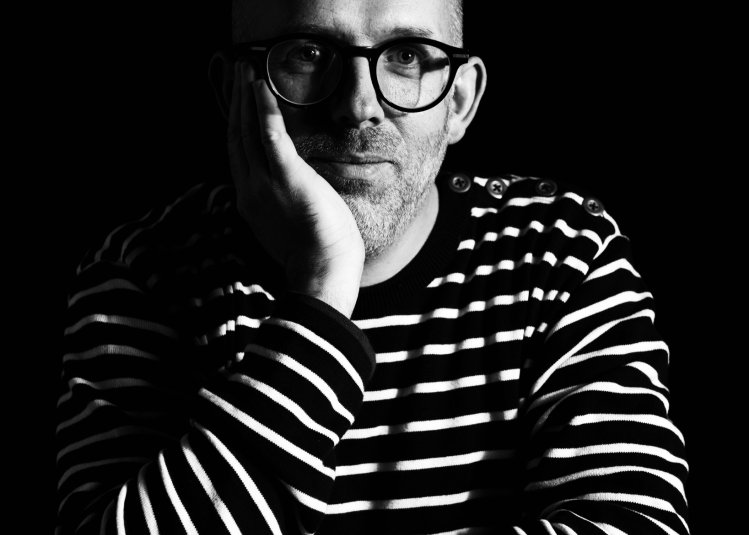
Wyl Menmuir
Lecturer, Creative Writing
Wyl Menmuir is an award-winning author based in Cornwall. His 2016 debut novel, The Many was longlis...
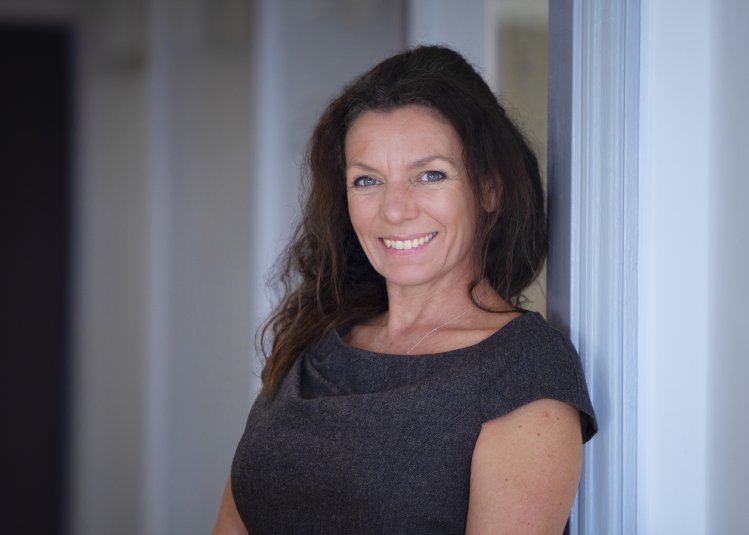
Nicola Coplin
Lecturer
Nic has taught at Falmouth University since 2013. She trained in acting at the Hub Theatre School in...
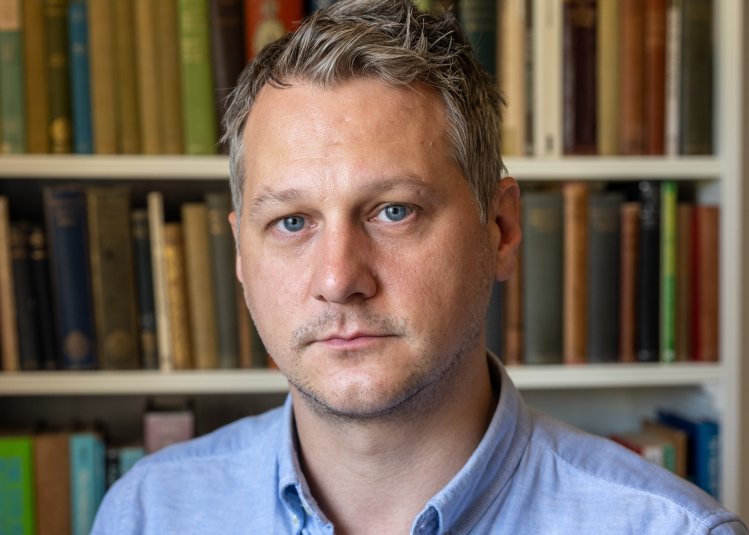
Dr Adrian Markle
Interim Course Leader, BA(Hons) Creative Writing and BA(Hons) English with Creative Writing
After joining the course team in 2019, Adrian became the Interim Course Leader for BA(hons) Creative...
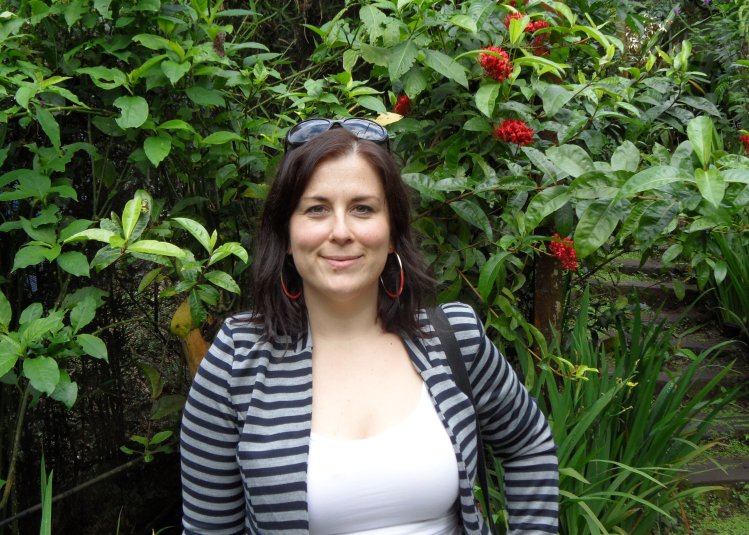
Dr Jo Parsons
Senior Lecturer in English and Creative Writing
Dr Jo Parsons specialises in popular literature and culture from the Victorian period to the present...
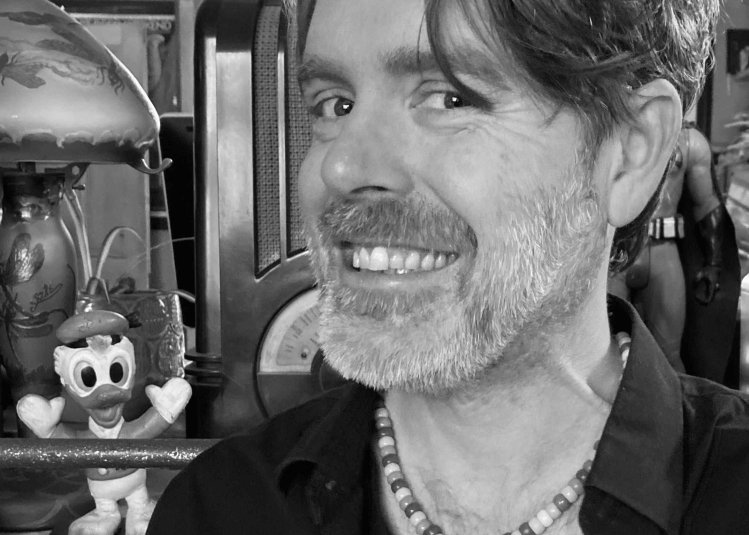
Craig Barr-Green
Lecturer, Creative Writing BA(Hons)
Craig Barr-Green writes for page, stage and screen. In 2010 he set up Clickety Books, creating resou...
Lecturer Kit Chapman's Top 5 Writing Tips
Lecturer Kit Chapman (who happens to be an award-winning journalist), tells us his top five creative writing exercises used with Falmouth University students. Get a taste of how we'll help you break out of your Monday morning mindset at uni and bring your imagination roaring to life!
Read Kit's tips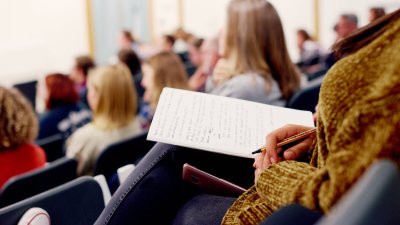
Facilities
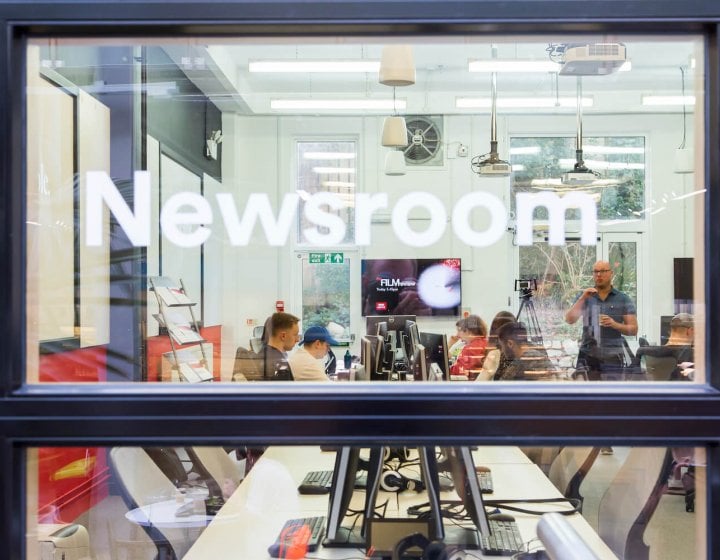
Media Equipment and Facilities
Our industry-level facilities offer everything you need to practice and produce animation, film, TV,...
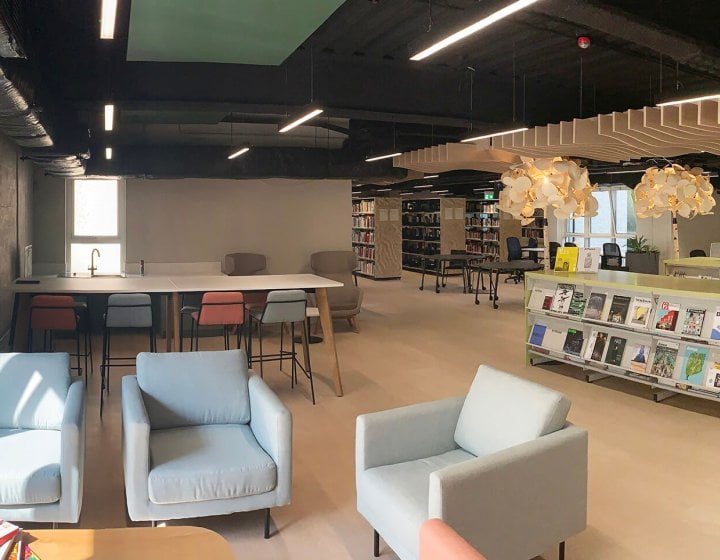
Library Facilities
Offering extensive collections, our two libraries provide a wealth of digital resources, magazines, ...

Sports Centre
Our Sports Centre, on Penryn Campus, includes a spacious gym with up to 90 of the latest, new statio...
- Digital labs, lecture theatres and seminar rooms.
- Libraries housing 140,000 books, 17,000 DVD and video titles, and exhaustive electronic and journal resources.
- Printmaking studio with a range of printmaking techniques from screen-printing to lithography and monotyping.
- Digital printing and reprographics.
- The Lighthouse: a beautifully appointed room designed to be a social space for students and alumni to meet, collaborate and relax.
- The Shed is a space designed for focused, individual work for writing and journalism students.
- IT suites and technical workshops for Adobe InDesign and other digital tools.
- Extensive library facilities, including archive and special collections, specialist poetry collections, the Cornish Performance Archives, Chris Brooks Collection of Victorian Culture, and Patrick Gale author archive.
- The Soundhouse hosts state of the art audio recording and editing facilities. Specialist technical support is provided.
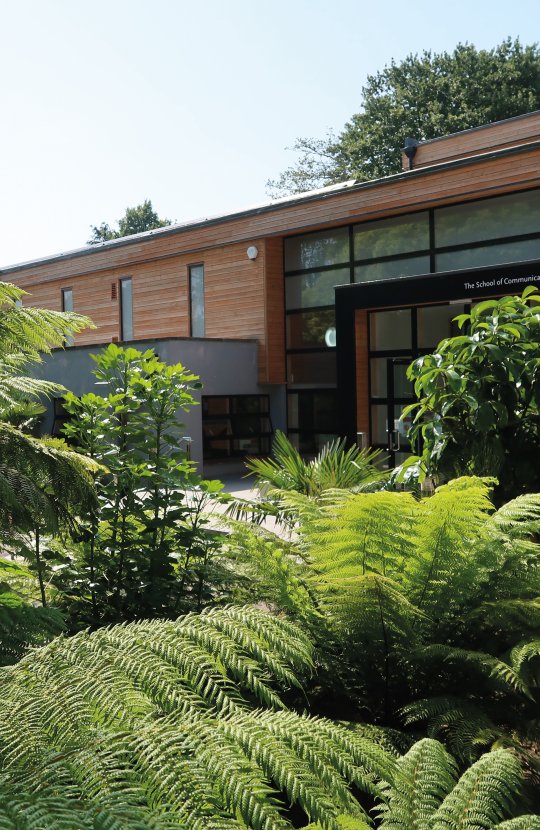
Virtual tour
Discover where you’ll spend your time as a student with our 360° tour, showcasing our facilities, accommodation, town and scenery.
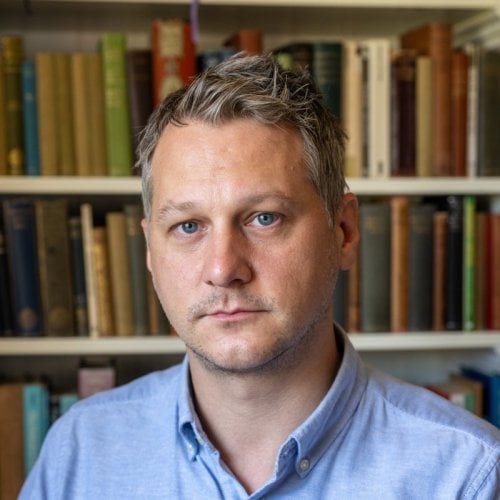
Got a question about this course?
If you want to know more about the course structure, our application requirements or what our graduates have gone on to achieve, our friendly course team is here to help.
Chat to AdrianCareers
Our Creative Writing graduates have worked as:
- Authors
- Lecturers
- Director at Bristol Old Vic Young Company
- Web Content Editor at TorFX, Cornwall
- Creative Developer at Brand Institute, Miami
With businesses growing their online presence, talented writers are being hired as copywriters, web editors, PR officers and content creators to help brands communicate.
How to apply
Ready to apply for 2026?
You can apply for our undergraduate degrees via UCAS. You'll need our university UCAS code (F33) as well as your course code (which you'll find on your course page) for your application.
Applying as an international student?
There are a number of different ways to apply to study at Falmouth as an international student. Find out how you can become part of our creative community.
| Course route | UCAS code |
|---|---|
| Creative Writing BA(Hons) three year degree | W890 |
| Creative Writing BA(Hons) with professional placement | PY45 |
For starting your studies in 2026
UK applications: 14 January 2026 (for equal consideration)
Applications after the 14 January will be considered on a first-come, first-served as long as there are places available. Apply for this course now.
For starting your studies in 2027
UK applications: 13 January 2027 (for equal consideration)
International fee payers
International fee payers can apply throughout the year. But we recommend applying as early as possible, to make time for visa and travel arrangements.
We consider all applications on their own individual merit and potential.
Our diverse community is creative, innovative and entrepreneurial. We recognise that these qualities aren’t always shown in academic grades alone. That’s why, while many of our applicants achieve high academic grades, we also welcome those who can demonstrate their potential through an interview.
We welcome applications from all subject backgrounds, whether you’ve specialised in STEM, the arts or humanities. Find out more about our Entry Requirements here.
Course routes & entry requirements
BA/BSc(Hons) three year degree: minimum 96 UCAS Tariff points
BA/BSc(Hons) four year degree with professional placement: minimum 96 UCAS Tariff points
At Falmouth, we'll consider the equivalency of your specific qualifications against our entry requirements and support you through your application journey.
View our International Entry Requirements
Language requirements
For applicants whose first language is English we require you to have or be working towards GCSE English Language Grade 4 (C), or equivalent.
If English is not your first language you will need to meet the same standard which is equivalent to the IELTS Academic 6.0 overall score, with at least 5.5 in Reading, Writing, Speaking and Listening. We accept a range of in country equivalencies and approved tests.
If you need a student visa to study in the UK, you may need to take a recognised language test. You can read our English Language Requirements for more information.
Fees, costs & funding
Tuition fees
| Annual tuition fee | Student |
|---|---|
| £9,790 per year | Full-time UK |
| £19,950 per year | Full-time EU/international |
| £1,955 per professional placement year | Full-time UK and EU/international |
| Annual tuition fee | Student |
|---|---|
| £9,535 per year | Full-time UK |
| £17,950 per year | Full-time EU/international |
| £1,905 per professional placement year | Full-time UK and EU/international |
Tuition fees for September 2027 will be confirmed in summer 2026.
Tuition fees are set annually and are subject to review each year. The University may therefore raise tuition fees in the second or subsequent years of a course, in line with inflation and/or the maximum permitted by law or Government policy. Students will be notified of any changes as soon as possible.
The figures above don't include accommodation and living costs
Typical course costs
- Approximately £100 - Recurring annual costs, such as books for your studies.
You do not need any specific software, but a reasonable home or work computer and standard wifi will be required for this course.
If you need to bring equipment or materials with you, these will be outlined in your Welcome Letter.
The majority of the texts and other resources you need for your studies will be freely available to you via the library and the virtual learning environment, Learning Space, once you have enrolled.
The number of books you might need to purchase will vary from module to module, depending partly in years 2 and 3 on the options you select. But we recommend you allow for an annual books budget of £150-£200.
Funding
For information about funding available, please visit our student funding pages.
Ask a student
What better way to find out about life at Falmouth University than by asking our current students?
From course details and academic support, to the social scene and settling in, our students are ready and available to answer any questions you might have. Simply set up your account, send them a question and they'll get back to you within 24 hours.
Similar courses
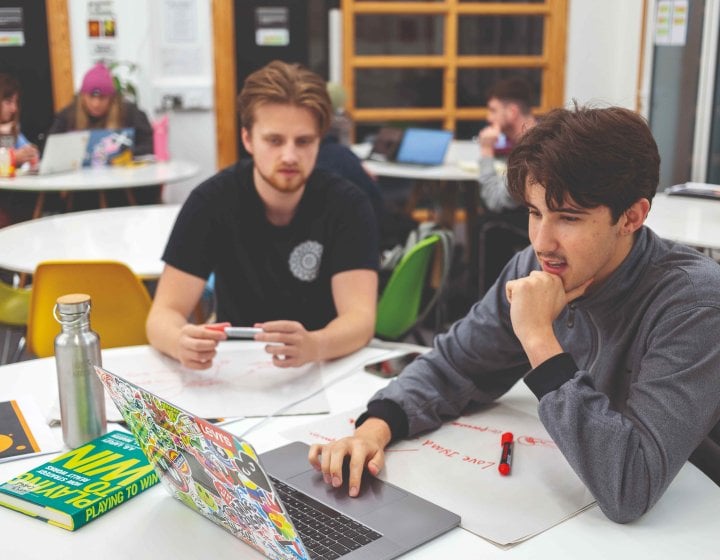
Media & Communication BA(Hons)
Digital media shapes our society and culture, and needs creative storytellers to drive it forward. O...
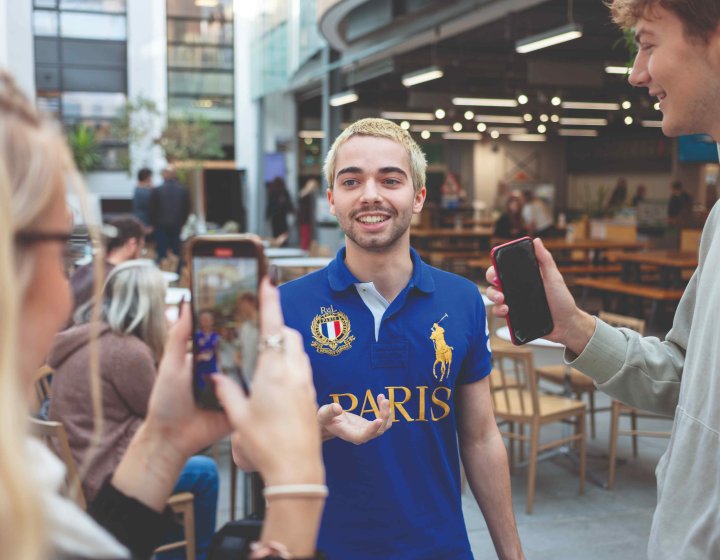
Media & Journalism BA(Hons)
This Media & Journalism degree is for creatives who want to combine their passion for writing wi...
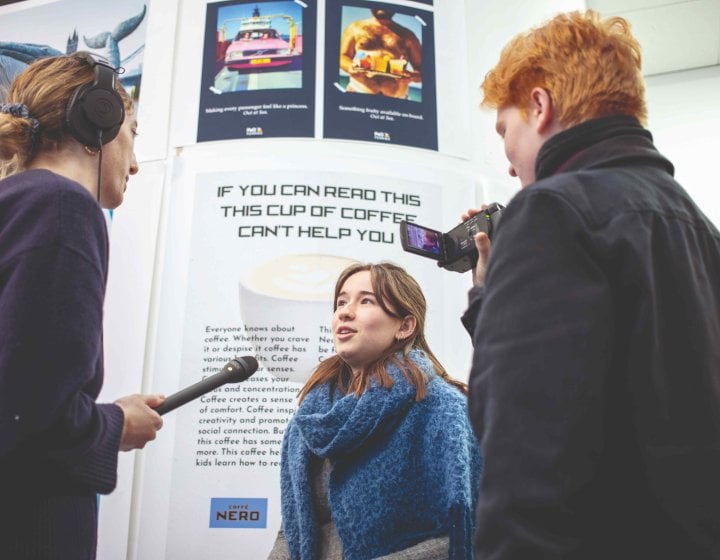
Media & Public Relations BA(Hons)
Today’s fast-paced media landscape is calling out for brave and flexible storytellers. On this Med...
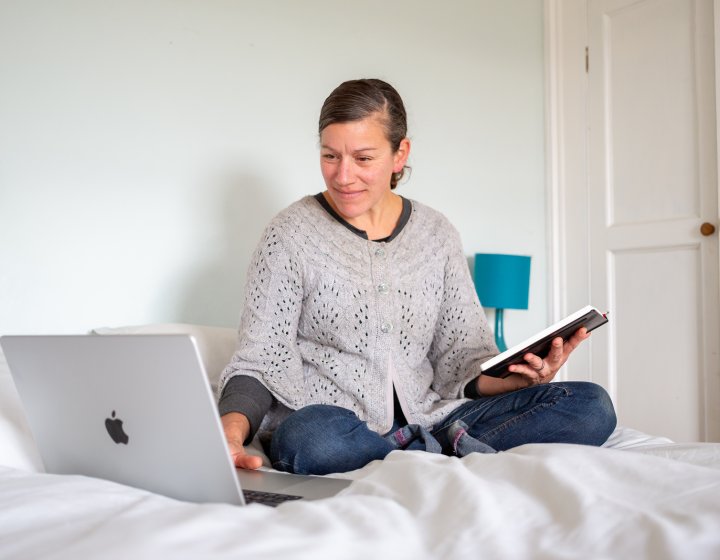
Creative Writing BA(Hons) (Online)
Whether you dream of penning novels, writing for games, creating compelling digital campaigns or wri...
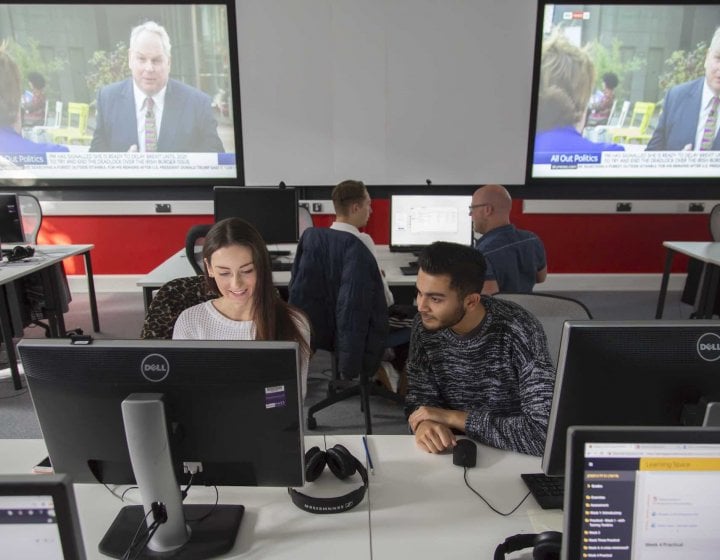
Journalism & Creative Writing BA(Hons)
Kick-start your career as a writer, learning how to analyse, practise and publish all forms of journ...
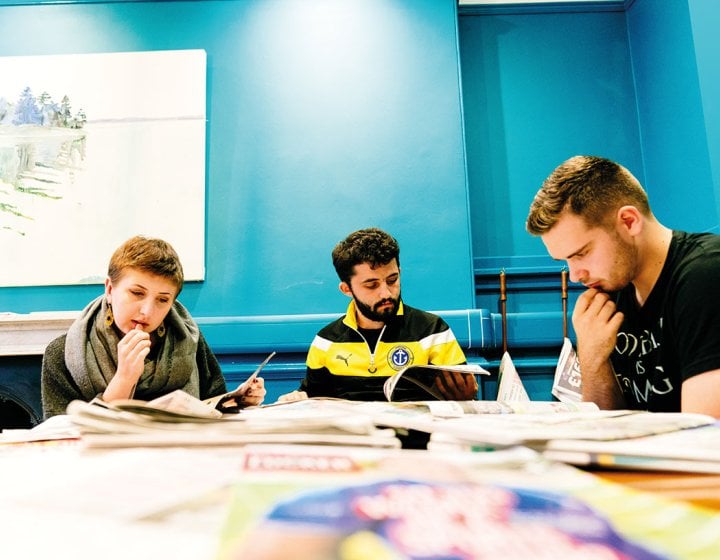
English & Creative Writing BA(Hons)
Join a celebration of literature and writing. You’ll read critically and widely, learning about hi...
Open Days and events
From visiting campus to online application advice, get all the information you need about joining our creative community.
Find an event
